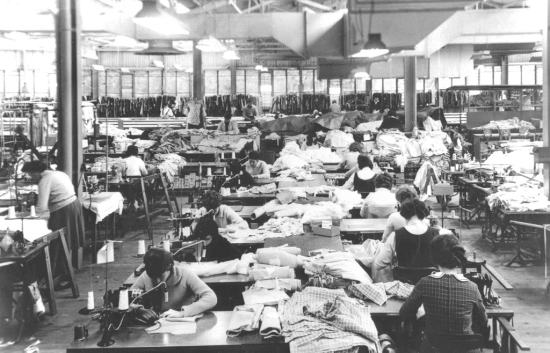The liquidators of Caerlee Mills in Innerleithen, KPMG, have announced that Scotland’s oldest continually-operating textile mill has officially closed after efforts to find a buyer proved futile. Dating back to 1788, the mill employed over 400 workers from the local community at its peak production time during the Industrial Revolution.

Demand for British made textiles has dropped significantly in recent years
While the number of workers dropped significantly from that time, the closure will affect 33 full time employees who, until Friday, remained loyal to the company. Only three staff members have been kept on in order to assist in the process of winding down operations fully.
It is understood that KPMG attempted to negotiate the sale of the business and property as a going concern, yet no interested parties could be found. This could largely be due to demand for British-made textiles dropping significantly in recent years thanks to cheaper foreign imports.
In fact, this very reason played a large role in the eventual failure of Caerlee Mills, as the firm’s main customer chose to reduce the volume of manufacturing at the site. As a result, there was no choice but to call in administrators as the firm began to haemorrhage money on operating costs alone.
KPMG representative Blair Nimmo assured staff that they would receive support in searching for new employment during the liquidation period, and praised their co-operation during what he called a “difficult process.”
He continued; “Despite our best efforts to secure the sale of the mill we have been left with no option other than to cease all operations with immediate effect.
“Unfortunately 33 of the company’s 36 employees have been made redundant, with three staff being retained in the short term to assist in winding down the business.
“There was no interest expressed from parties looking to continue running Caerlee Mills as a going concern, which has ultimately led to its closure.”
This is not the first time administrators have been called in– previous owners JJ & HB Cashmere succumbed to the difficult economic conditions three years ago, with the result that 132 jobs were lost. However, a management takeover saved the mill from closure and 36 staff members were able to keep the business afloat.
Sadly, it seems that this is not an option this time and the British manufacturing industry has suffered yet another blow.
Do you think British companies should be attempting to source materials from the manufacturing industry in this country as a means of boosting the economy, or is the cheapest option the best so successful firms can build up their capital in a time of economic uncertainty?
Previous Post
Sweepstake Fever Hits Offices Ahead of Grand National